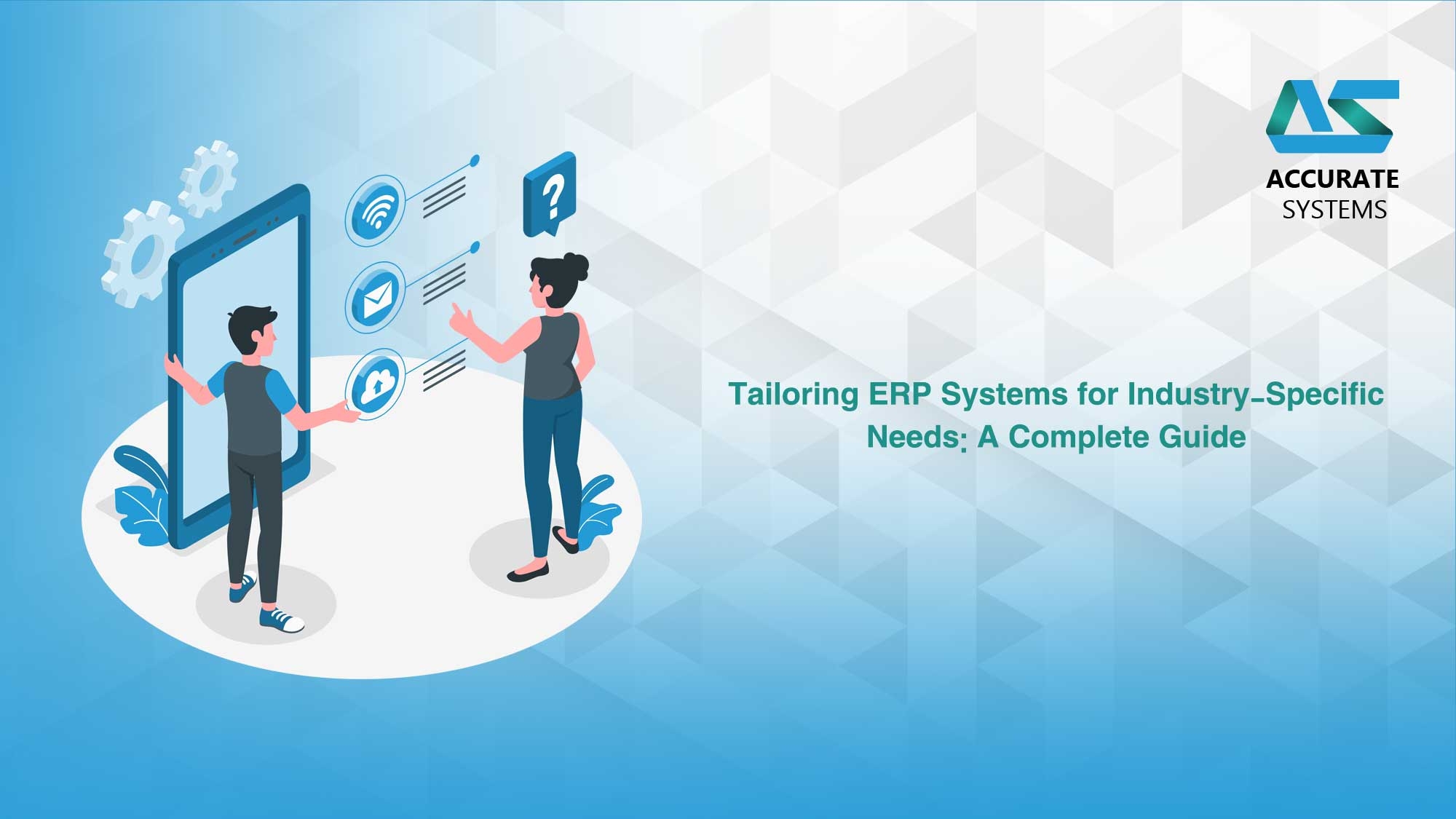The Importance of Industry-Specific ERP Integration
Enterprise Resource Planning (ERP) systems offer a wide range of tools to manage business functions like finance, HR, supply chain, and customer relationship management. However, to truly optimize operations and address the unique challenges of different industries, ERP systems need to integrate with industry-specific solutions.
Industries such as oil and gas, healthcare, and manufacturing have distinct challenges requiring customized solutions. Industry-specific ERP integration offers tailored solutions that can:
- Improve Efficiency: Streamline processes, minimize errors, and enhance workflow optimization.
- Enhance Compliance: Facilitate easier compliance with industry-specific regulations and standards.
- Increase Productivity: Automate tasks and provide actionable data to boost productivity.
- Support Decision Making: Deliver insights and analytics specifically designed for particular industries.
Why Industry-Specific ERP Solutions Matter
Industry-specific ERP solutions not only help companies remain competitive, but they also offer several strategic advantages:
- Reduced Errors and Downtime: Tailored tools minimize manual interventions, leading to fewer operational errors.
- Enhanced Data Accuracy: Sector-specific tools ensure data consistency, enabling better decision-making.
- Optimized Resources: Streamlined processes maximize resource utilization across different departments.
Examples of Industry-Specific ERP Integrations
1. Oil and Gas ERP Integrations
Oil and Gas companies have complex operations involving multiple moving parts. Specialized ERP integration can add significant value:
- Supply Chain Management: Integration helps in tracking materials, managing inventory, and optimizing logistics.
- Asset Management: Industry-specific asset tools are effective for equipment tracking, maintenance schedules, and compliance with regulatory standards.
- Health, Safety, and Environment (HSE): ERP with HSE modules can manage safety incidents, regulatory compliance, and enhance safety performance.
2. Healthcare ERP Integrations
The healthcare industry demands accuracy, patient privacy, and strict regulatory compliance:
- Patient Management Systems: Integrate ERP with patient management tools to efficiently manage appointments, track patient records, and facilitate billing.
- Electronic Health Records (EHR): A unified ERP-EHR system allows for efficient data sharing, contributing to better patient care.
- Regulatory Compliance: Industry-specific ERP solutions ensure compliance with regulations like HIPAA and CLIA, avoiding legal issues.
3. Manufacturing ERP Integrations
Manufacturing companies benefit greatly from specific ERP integrations that align production with management systems:
- Manufacturing Execution Systems (MES): Integrating ERP with MES provides real-time production visibility, quality tracking, and better resource utilization.
- Quality Management Systems (QMS): Connect QMS with ERP to manage quality control, track non-conformities, and improve overall product quality.
- Maintenance Management: Specialized maintenance tools reduce equipment downtime through proactive scheduling and monitoring.
Key Considerations for Successful ERP Integration
When integrating ERP with industry-specific solutions, it is crucial to consider:
- Data Integration: Ensure seamless data flow between the ERP system and industry-specific tools, minimizing inconsistencies and data silos.
- Customization: Look for customization options that match your specific business processes and needs.
- Scalability: Make sure that the integration can scale with your business growth and changes.
- Cost-Benefit Analysis: Evaluate potential ROI, taking into account implementation, maintenance, and other expenses.
Benefits of Industry-Specific ERP Integration
1. Enhanced Efficiency and Productivity
ERP systems tailored to specific industries can streamline processes and optimize workflows, leading to reduced operational errors and enhanced productivity.
2. Improved Compliance
Specialized compliance tools ensure adherence to sector-specific regulations, reducing risks of non-compliance fines or penalties.
3. Better Decision-Making
By using specialized analytics, businesses gain valuable insights that are specifically relevant to their field, making for more informed and impactful decision-making.
4. Increased Customer Satisfaction
A tailored ERP solution helps organizations meet customer demands more effectively, improving overall customer satisfaction and loyalty.
5. Competitive Advantage
By optimizing operations and aligning industry-specific tools, businesses gain a competitive edge, allowing them to differentiate from competitors and serve their markets more effectively.
Best Practices for Successful ERP Integration
To ensure the successful integration of ERP with industry-specific tools, follow these best practices:
1. Define Clear Objectives
Clearly outline the goals of the integration project to ensure alignment with your business strategy.
2. Conduct a Thorough Assessment
Assess existing processes to determine where industry-specific solutions can drive efficiency.
3. Involve Key Stakeholders
Engage stakeholders from various departments to ensure broad-based support and alignment throughout the organization.
4. Consider a Phased Implementation
A phased integration approach reduces risk and allows for better adjustment at each stage.
5. Provide Adequate Training
Train employees effectively to maximize the new solution’s capabilities, ensuring they understand how to leverage the new tools fully.
6. Monitor and Evaluate
Continuously monitor and evaluate the performance of the integrated solution. Feedback loops can improve efficiency and ensure business objectives are being met.
Conclusion: Achieve Operational Excellence with Tailored ERP Solutions
Tailoring an ERP system to meet industry-specific needs is a powerful strategy to enhance efficiency, ensure compliance, and gain a competitive advantage. Successful ERP integration requires a clear plan, thorough assessment, stakeholder involvement, and a commitment to continuous evaluation. Companies that successfully leverage industry-specific ERP solutions can streamline their processes, reduce operational risks, and deliver superior services that set them apart in a competitive landscape.


